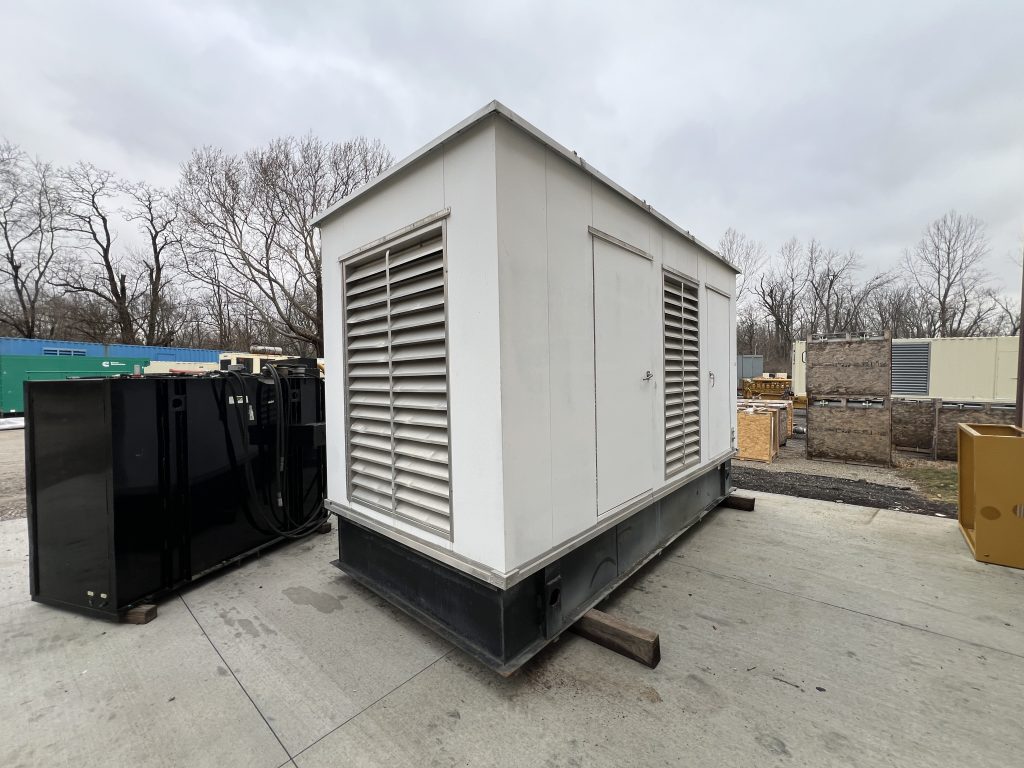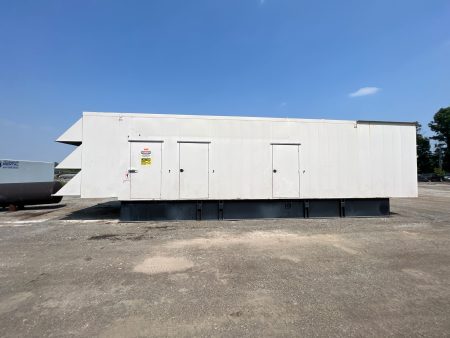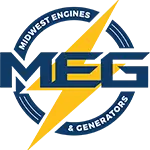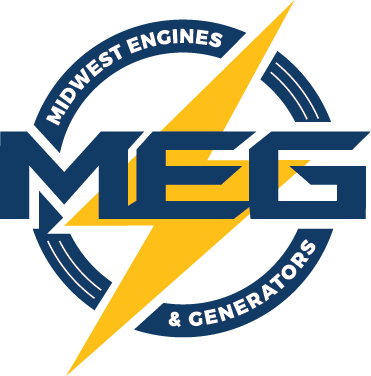The market size of the industrial generator was estimated around USD 18.3 billion in 2022, and is expected to rise by 7.3% till 2032. Investing in a top-notch quality industrial generator is a crucial decision for each business.
With the rise in dependency on electricity, to operate multiple machines, you must have backup power to ensure the smooth continuity of your business during unexpected electricity outages.
However, with the number of industrial generators available in the market, selecting the right one can be a confusing and challenging task.
In this industrial generator purchasing guide, you will learn how to select a generator by considering some of the most crucial factors as per the needs of your business. From maintenance and portability to fuel type and power capacity, you will be informed of each key point that you must consider while choosing the best industrial generator for your business needs and expectations.
Power Requirements for Your Business
Before you purchase an industrial generator, acknowledge your business needs in regard to power requirements. Study in-depth about the technical details such as load fluctuations, future expansion plans, peak power demand, and other power needs that you might require for a particular project or job site. Moreover, also consider the minimum desired running time of your generator.
When you are aware of all this information, it’ll help you search for the generator that suits your requirements the best. For a quick estimate or unit conversion, you can use a power calculator and acknowledge the specifications you are searching for.
You must be familiar with the basic power ratings for equipment. The industry standards set these classifications that are categorized into four major rating categories:
- Prime Rated Power (PRP)
- Limited Time Prime (LTP)
- Continuous Operating Power (COP)
- Emergency Standby Rating (ESP)
Familiarize yourself with these four categories, as it will help you to understand the best generator that can meet your requirements.
It is important to perform a detailed assessment of the power usage required for your business to learn the exact power requirements. You can contact a certified electrician in order to perform this assessment. The electrician considers the multiple equipment and the machinery that require power during an electricity outage, along with their power ratings. They even consider any spikes or power surges that might occur during operation or start. Hence, it is important that you plan for the expansion and future growth of your business as it ensures that you choose the right generator for your business.
Types of Industrial Generators
Industrial generators are often highly priced. Hence, you will have to make a good investment in order to get a return on investment. Fortunately, industrial generators come with high cost, but also offer cost flexibility due to better credit options and bulk purchases.
Diesel Generators

Diesel generators are costly. In maximum cases, the price is acceptable because of the power capabilities and the large size that comes along. Often, diesel generators are implemented to run devices such as freezers, computers, security systems, and HVAC services. These generators can even function entire hospitals, maintain immense freezers, and save infrastructure power.
Natural Gas Generators

A second-hand or brand-new natural gas generator consumes stored natural gas for creating electricity. Engine-powered natural gas generators can be implemented for your businesses. These generators do not burn liquid as compared to the other generators. Hence, to reduce the overall cost, they combust gaseous fuel.
Key Points to Choose the Best Commercial Generator
With a variety of industrial generators existing in the market, it’s important to compare and research the multiple options in order to get the best one for your business requirements. Apart from the details discussed above, some of the key points you must consider to make an informed decision are:
Research Generator Providers
Look for generator providers with a good reputation in the market and a good record of providing reliable and high-quality generators with helpful customer service. Go through the testimonials and customer reviews to acknowledge their reliability.
Model and Manufacturing
Whenever shopping for a generator, look for the multiple models available and research the manufacturer. Each manufacturer has different qualities and has their own reputation. Hence, brand consideration is a key point when purchasing an industrial generator. Also, keep in mind that if you are paying a higher amount for your generator, it must return good quality and lesser maintenance costs in return.
Portability
You must consider the portability of a generator based on your business’s mobility requirements. Some businesses may prefer stationary generators permanently installed in a designated location. Portable generators often come with built-in fuel tanks and features like voltage selector switches or distribution panels for convenience.
Stationary generators are typically larger, necessitate professional installation, and require connection to the building’s electrical system. Compliance with city, county, or state codes, along with certifications like UL2200 Listing or CSA certification, may be necessary for stationary generators. Businesses with varying locations, like construction sites or remote areas, may benefit from easily transportable generators mounted on trailers.
Support and Warranty
Go for generators that come with warranty and customer support. A good warranty ensures that you have made the right investment. Moreover, ask for the availability of service providers and spare parts of the generator model and brand you are purchasing for Timely maintenance and long life.
Brand-New or Second Hand
Deciding between purchasing a new or used generator is a significant choice. Opting for a brand new generator is worth considering, especially for diesel generators known for their extended operation time before requiring repairs or replacements, often around 10,000 hours. However, choosing a used generator doesn’t necessarily mean sacrificing quality.
It’s crucial to thoroughly research the age and usage of a used generator before making a purchase. Inquire about the generator’s year of manufacture when dealing with a seller, and look for a built-in hour meter to gain insights into the machine’s usage history. This diligence ensures a well-informed decision and potential cost savings without compromising reliability.
Safety Switches
Certain generators come equipped with automatic shut-off switches, a critical safety feature for emergency backup generators. The absence of a safety switch in a backup generator could lead to circuit blowouts upon activation. On the other hand, transfer switches play a crucial role in monitoring voltages in a circuit. In the event of an interruption, a transfer switch can promptly initiate a generator’s power supply before efficiently shutting it down, ensuring smooth functioning and safeguarding against major issues.
Features and Specifications
Examine the features and specifications of various industrial generator models to align them with your business needs. Evaluate factors like run time, fuel tank capacity, noise levels, emissions, and safety features. For instance, if your business operates in a noise-sensitive area, prioritize generators with low noise levels to adhere to local regulations and ensure compliance.
LCD and LED Displays
Many generators come equipped with LCD and LED displays, status bars, and user-friendly menus. Illuminated displays and notification lights enhance safety, ease of use, and predictability during nighttime operations. In daylight hours, LCD and LED displays provide clear visibility for monitoring fuel levels and oil notifications.
Repair History
Prior to making a purchase, thoroughly investigate the repair history of an industrial generator. Request maintenance records, particularly for generators with extensive prior use, to assess their capacity to meet your requirements. Consider hiring a specialist for a comprehensive inspection to determine the remaining service life of the generator. Evaluate the unit’s overall maintenance quality and the extent of wear and tear it has incurred over time.
Related Product: 1996 Cat 3412 600kw Diesel Generator Set
Maintenance
Ensure to prioritize proper maintenance for reliable and efficient industrial generator operation. Regular maintenance is essential to detect and address issues before they escalate, promoting optimal performance and extending the generator’s lifespan. When selecting an industrial generator, factor in maintenance requirements and associated costs for the specific model. Diesel generators often need regular maintenance tasks like oil changes, periodic testing, and fuel system cleaning to ensure smooth operation.
Actionable Adverbs
When deciding between diesel and gas generators, it’s crucial to factor in your business’s specific needs, such as necessary portability, power capacity, maintenance, and budget constraints. Seeking advice from a reliable generator provider can assist you in making a choice tailored to your unique requirements.
Go for MidWest Generators for your industrial generator needs for a crucial reason – being the best supplier with readily available, in-stock industrial generators. This ensures swift turnaround times, removing the need for months-long waiting periods for generator delivery. Simply select the suitable generator to fulfill your requirements, and it will be delivered from our readily available inventory.
At MidWest, our reputation is built on excellence in power system purchasing and rebuilding. If you require assistance regarding the purchase of an industrial diesel generator, our experts are ready to guide you through the process.
Common Questions about Industrial Generators
Q1. How to understand the right size of an industrial generator?
You must calculate the total power requirements to determine the right size of a generator. Note down all the machines and equipment that require power through your generator, monitor the power consumption of each item, and add them all. Select a generator that is built to handle the total power load along with additional capacity for future needs.
Q2. Which fuel is used in industrial generators?
Industrial generators can run on gasoline, diesel, propane, or natural gas. The fuel you choose depends on the requirements of your business and the availability of the fuel. Diesel generators are well known for their efficiency and durability. However, generators, running or natural gas, are pocket-friendly and environment-friendly.
Q3. Should I consider the running time of the generator while purchasing one?
A generator that runs longer needs fewer refills. Hence, select a generator that is more cost-effective in the long run because the generator needs less refueling.
Q4. What do you understand about the power factor in industrial generators?
Power factor measures how a generator transforms electrical power into useful work. It is the ratio between the apparent power (kVA) and the real power (kW) that the generator can deliver. When the power factor is high, the generator is more efficient.
Q5. What is the difference between prime, standby, and continuous ratings?
Standby Rating represents the maximum power output of a generator for backup in emergency situations with certain operating hours each year. The prime rating shows the power output of a generator for long periods, usually around 70–80% of the standby rating. The continuous rating indicates the power output of a generator for continuous operations without any time limitation.
Q6. What is better – a new or used generator?
Whether you purchase a used or a new generator entirely depends on your needs. Both of them have different pros and cons, and you should decide whichever aligns with your needs. While new generators offer warranty, the latest technology, and other updated features, used generators can be customized according to your needs and are cost-efficient.
Q7. What are the key factors to consider before purchasing an industrial generator?
The key factors to be kept in mind are your requirements, brand, fuel options, power, generation, warranty, emission levels, voltage, mounting pads, automatic or manual, enclosures, and safety aspects. These major specifications are crucial to consider when choosing your industrial generator.
Q8. Is purchasing an automatic-running generator a good option?
Yes, the newly built generators offer an automatic start option and smoothly deliver power to the industrial units, making your operations smoother from power grid electricity to alternate power.


